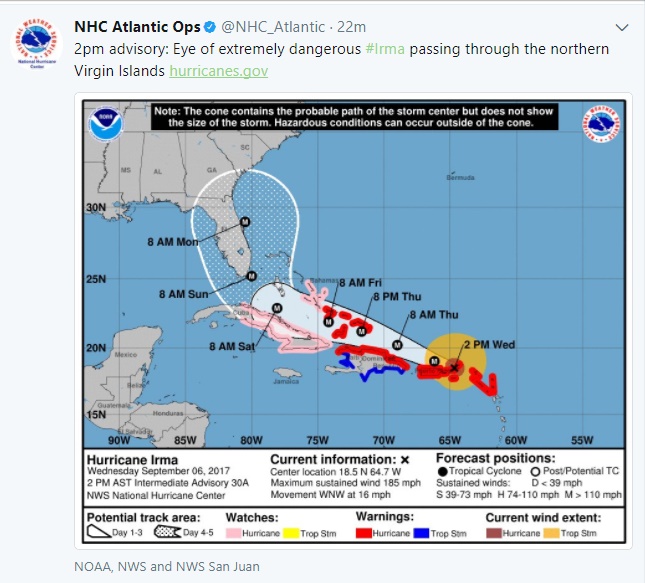Q: Like everyone else around the country, I’ve been touched by the harrowing stories of the flooding in Texas. Things seemed to happen so quickly and appeared to catch businesses and people off guard. I own a small business and this has made me realize that we need to have a better disaster plan that’s not just about the business, but one that also includes our employees. Where to begin?
A: Most businesses in Florida have a disaster plan that takes into account the impact on the business, with focus on how to handle logistics: contingency plans, protecting equipment and inventory, or insuring company data is safely backed-up off-site. But, as you point out, disaster plans sometimes overlook a disaster’s impact on employees and their families.
Here’s where I’d begin. An inclement weather or disaster policy for employees, should concentrate on these two areas:
Employee Communication – How are you going to send and receive info during a crisis? Consider a calling tree. Or better yet, a free text-messaging program that allows sending texts to all your employees. Then, provide updates on office closures, working from home or request a skeleton crew.
Don’t make the mistake of waiting to communicate until you have a good handle on the situation. People are anxious, communicate often, sooner rather than later, even as the situation develops. Remember, an information vacuum allows rumors and misinformation to spread. This is also a good time to encourage mutual support, acknowledge difficulties and voice appreciation.
Paid vs unpaid leave –
Some business will pay workers for office closures, some do not (ouch!) others require them to use their paid leave. Decide how you’ll handle leave ahead of time. Don’t wing this, everyone should know what to expect.
Lastly, plan for some employees not returning right away:
- If schools close, employees with kids may have to stay home.
- Those with elderly parents may need to assist them.
- Those living in rural areas may have impassable roads.
- Some may be housing relative “refugees” who evacuated from elsewhere.
As much as possible during a disaster, businesses should offer employees flexibility regarding attendance. It’s cliché but, a crisis can be an opportunity to bring people together and create a stronger team.
http://www.floridadisaster.org/getaplan/
©Copyright Eva Del Rio
Eva Del Rio is creator of HR Box™ – tools for small businesses and startups. Send questions to Eva@evadelrio.com



